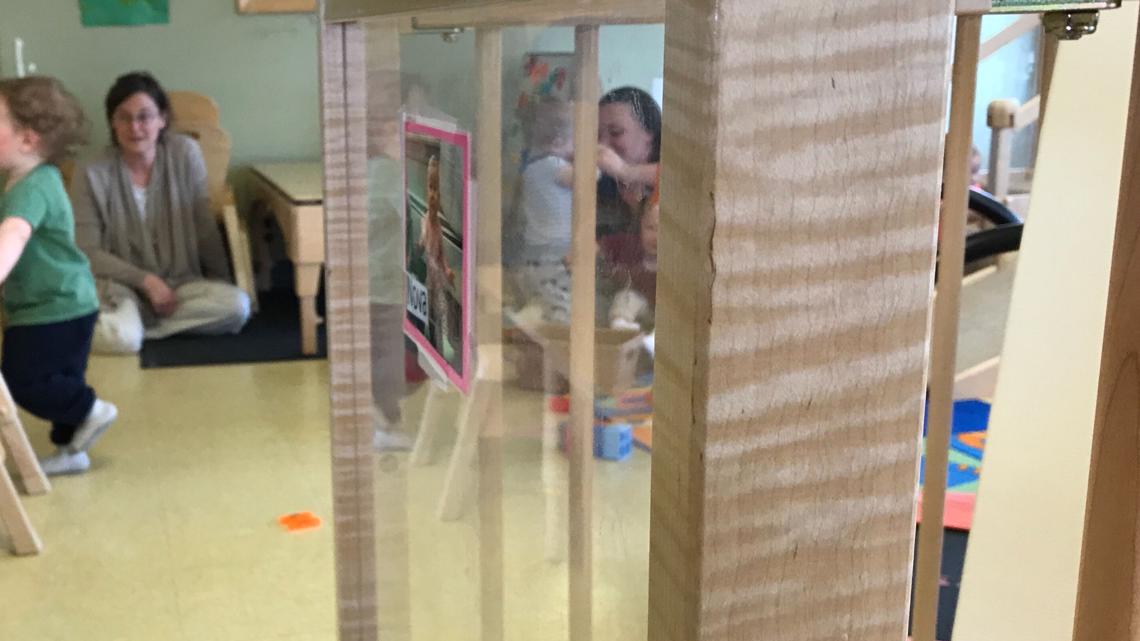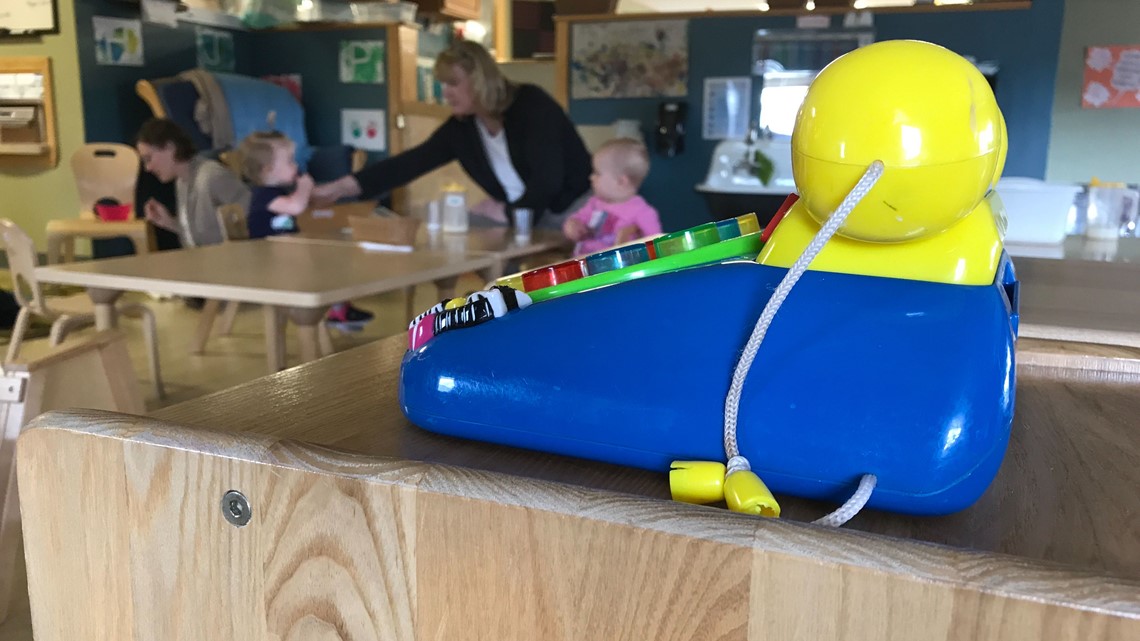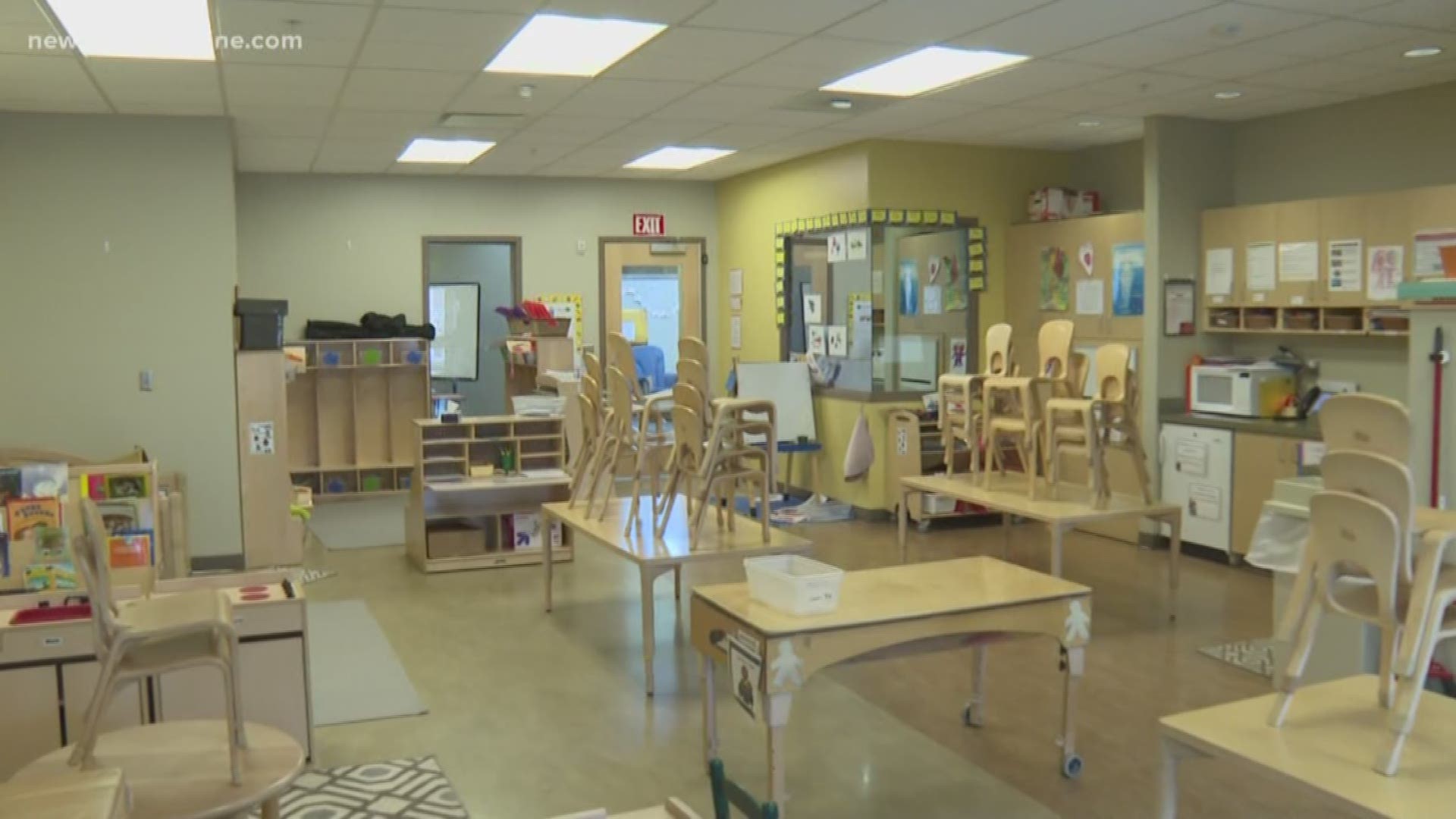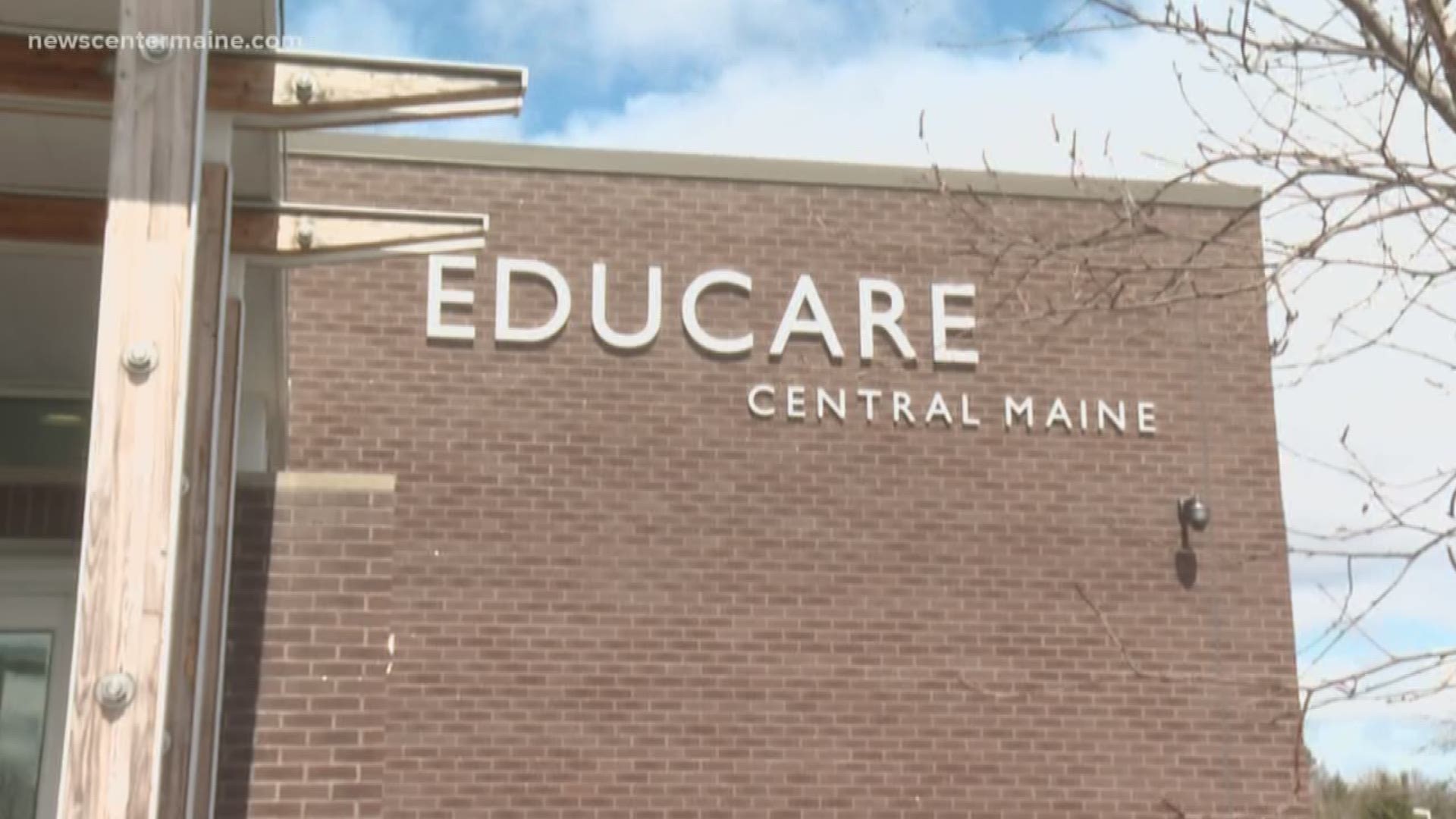WATERVILLE, Maine — Maine business leaders are starting to treat high-quality early childcare as an investment. If it's done right, the returns will not only save the state's future workforce but also its current workers.
There are four major issues regarding Maine's daycare deserts: waitlists for infants, hiring quality workers, childcare facilities closing and affordability.
One specialized facility in Waterville, Educare Central Maine, believes they have a model the state could benefit from.
RELATED: Surviving Maine's daycare desert
Educare Central Maine says they use evidence-based research at 24 locations across the U.S. to focus on ages zero to four to make sure all children have the same opportunities to advance in society.
"The plasticity of the brain, the way neuro-connections are forming, that early phase -- it’s just so important, and it sets you up for a lifetime of success, and to do that work subsequently is much more difficult," said Jim Clair, an Educare board member and Co-Chair of the Maine Early Learning Investment Group. "Ultimately, it’s in the state’s best interest for not only greater kids and all, but for when we look down the line in 10, 20, and 30 years from now -- really high-skilled, quality people that want to stay, live, work and prosper here in the state of Maine."


For families unable to benefit from the modernized Waterville location, there is a program called "Elevate Maine," which brings Educare's 'data-driven early childhood model' to seven family childcare providers and a private-based center in Somerset County.
Educare and the facilities have a coach as an advocate to work with smaller childcare providers to help meet goals and also assist with curriculum, child assessment, and financial resources for renovations or continuing education for providers.
"Running a business in your home and trying to hire good-quality employees to work with you and offer that great service that you are trying to do is becoming more and more challenging,” said Sarah Lavallee, the Associate Director of Early Head Start Programming. "They want to take classes, they want to attend various college courses -- and financially that’s very difficult to do. So we are able to support them and help pay for those classes."
Educare offers additional stipends that supplement a childcare facility's market-rate payments. Lavallee says the stipends are critical because the cost of offering high-quality care is greater than what the market rate pays, so having additional funding helps providers greatly.


The Maine Children's Alliance told NEWS CENTER Maine in February there has been a drop in the number of providers, particularly family childcare advisers, in Maine over the past 10 years. Rita Furlow, the Senior Policy Analyst at the Maine Children’s Alliance, says the biggest impact is in rural areas, dependent on a family childcare setting.
"This is a field predominantly served by women," said Furlow. "And a lot of women have other options to go into other fields. In terms of pay for this field, it is significantly low. The average pay for childcare workers is about $24,000 a year."


Laurie Lachance is the President of Thomas College in Waterville. She currently serves as the chairperson for the Educare Central Maine board of directors.
Lachance was the first female state economist and analyzed and forecasted Maine’s economy for 29 years. She has grown to understand that in a knowledge-based, technology-driven economy if you don’t have a skilled and educated workforce, you don’t have a future.
"It is the single most important economic investment we can make," said Lachance.
For the immediate future, childcare options must be enhanced across the state to keep working parents productive and at work.
"You cannot go to work if you are worried about your child," said Lachance. "Because your number one concern is the safety and well-being of your child. If you’ve got a highly productive working professional who cannot find child care that’s satisfactory to their wants and needs to their child, you will lose them from the workforce. Or you would minimally lose the level of productivity you get from them."
Between 2009 and 2018, 128,792 babies were born in the state of Maine, according to the Maine DHHS Division of Public Health Systems. In 2018 alone, 12,299 babies were born.
Both Lachance and Clair believe that these numbers are manageable and that many of the issues plaguing childcare in Maine can be solved.
“It’s entirely possible. We are not that big of a state," said Lachance. "I think there are a little more than 12,000 babies born every year -- this is a manageable process. We just need to have the vision clarity and the focus just to do it.”
"At 12,000 (babies), we can solve this," said Clair. "The numbers are such that we can solve this as a state."
Educare Central Maine's training, empowerment of parents, health and nutritious foods, and human service investments model were made possible through partnerships with Kennebec Valley Community Action Program, Waterville Public Schools, the Bill and Joan Alfond Foundation, and the Buffett Early Childhood Fund. Educare collaborates with Maine Early Learning Investment Group (MELIG), Boys and Girls Club, and the YMCA.
The legislature is currently working on a bill, "An Act to Provide Stable Funding and Support for Child Care Providers", to help with Maine's daycare desert.
State Senator Rebecca Millett, D-Cumberland, the chair of the education committee, is sponsoring L.D. 1012 to increase payments to child care providers who participate in the child care subsidy system by offering incentives to accept infants. The bill has a public hearing scheduled on Friday.
As for the high costs of childcare for working parents – in some cases rivaling in-state tuition costs at college - there is a bipartisan push in Washington D.C. to make childcare more affordable.
The Promoting Affordable Childcare for Everyone Act (PACE), co-sponsored by U.S. Senator Angus King, is attempting to offset costs by modernizing and updating current federal childcare tax credits. The highlights of the PACE act include increasing the value for families of all income levels and increasing the amount of pre-tax dollars families can put into Dependent Care Flexible Spending Accounts.



